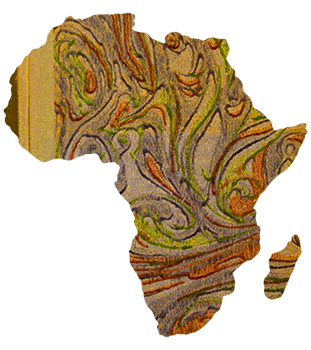AfTeR – The African Text: Representing Africa in Imperial Russia (1850-1917)
AfTeR – The African Text: Representing Africa in Imperial Russia (1850-1917)


The database is part of the project AfTeR – The African Text: Representing Africa in Imperial Russia (1850-1917), funded by the Stars@Unipd programme of the University of Padua. The project is set to investigate the ways in which the African continent and its inhabitants were perceived and represented in late imperial Russia (1850-1917), with regards to travel writing, fiction, and the first (pseudo-)scientific studies (historical, geographical, ethnographic).
The database offers a wide collection of bio-bibliographical entries detailing, for every source examined, a synopsis, information about the author (when applicable), and a brief list of references. The navigation is facilitated by tags, which make it possible to search for specific genres (Travel Notes, Essays, Children’s Literature…), a specific place within Africa, the presence of visual material (Illustrations), the main topic(s) (Medicine, Geography, Ethnography, History…). A free search is also possible. The entries can be arranged by author, or by year of publication.
The sources have been selected in order to recreate a representative picture of the Russian discourse over Africa in the late imperial period: authors from very different backgrounds and political orientations have been included in the database, and a variety of genres is represented (travel notes, essay, fiction, children’s literature, memoirs, textbooks). We have decided to prioritise volumes or articles dealing with (19th-early 20th century) modernity: that is why, for instance, studies or plays on ancient Egypt are for the most part missing. Famous writers whose association with the African continent is well-established, like Nikolai Gumilev, have been treated differently, and their entries cluster together their most relevant publications connected to Africa. On the other hand, reconstructing the biographies of some forgotten authors has proven to be challenging, and in some cases even impossible. We hope that future access to the archives will provide us with the missing pieces.
It is not the intention of the database to offer a complete catalogue and description of imperial Russia’s materials on Africa – such an undertaking is well beyond our limits. The interested parties can refer to the following bibliographies: R. Loewenthal, Russian Materials on Africa: A Selected Bibliography, “Der Islam. Journal of the History and Culture of the Middle East”, 1961, 36 (1-2), p. 128-151; S. Miliavskaia (ed. by), Bibliografiia Afriki. Dorevoliutsionnogo i sovetskaia literatura na russkom iazyke. Original’naia i perevodnaia, I, Moskva 1964.
Last, but not least: the original sources contain what is now racially marked language. For historical accuracy, we have maintained it in the translation of titles (including illustrations’ captions) and in quotes. As for the pair “Abyssinia”/“Ethiopia”, we have maintained “Abyssinia” when the original Russian title/caption chose it over “Ethiopia”; the tags, however, have all been standardised in “Ethiopia”.
Though already substantial, the database will be further developed.
Anita Frison, Maria Emeliyanova